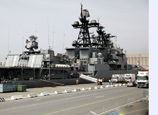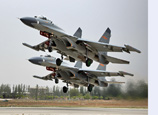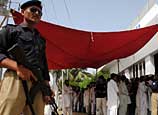
PARIS, May 20 (Xinhua ) -- The European Space Agency (ESA) announced Monday that astronaut Timothy Peake has been proposed to fly to the International Space Station for a six-month mission in 2015.
"Today I am very happy to announce the assignment of Timothy Peake for a mission to the International Space Station," said Jean-Jacques Dordain, ESA's Director General.
Peake was assigned to join a crew of Expedition 46/47 for a mission of six months in 2015. He will be the first British citizen to live and work on the space station and it will be the eighth long-duration mission for an ESA astronaut.
Peake was former helicopter test pilot and Major in the British Army. In 2009, he was appointed as a British ambassador for science and space-based careers. He has worked with the British Space Agency in developing the country's microgravity research program.
Since joining the European Astronaut Corps in 2009, Peake has received all kinds of necessary astronaut training to work on the space station, including a course of NASA's Extreme Environment Mission Operations, a testbed for space exploration technologies.
"I am delighted to be proposed for a long-duration mission to the International Space Station. This is another important mission for Europe and in particular a wonderful opportunity for European science, industry and education to benefit from microgravity research," said Peake.
According to ESA, Peake's classmate ESA astronaut Luca Parmitano is preparing for launch to the orbital outpost on May 28. Peake's mission will follow those of ESA astronauts Alexander Gerst and Samantha Cristoforetti, both scheduled for launch in 2014.
ESA said a series of mission training awaits Peakes who will start from his homebase at the European Astronaut Center in Cologne, Germany to NASA's Johnson Space Center in Houston, the United States, Star City, near Moscow, Russia, as well as Japan and Canada.
Director General Dordain noted that ESA recruited six astronauts in 2009 and will fulfil its commitment to fly all six newly selected astronauts before the end of 2017.
Founded in 1975, ESA is Europe's gateway to space. The group has 20 member states. It develops the launchers, spacecraft and ground facilities needed to keep Europe at the forefront of global space activities.
So far, it launches satellites for Earth observation, navigation, telecommunications and astronomy, sends probes to the far reaches of the Solar System and cooperates in the human exploration of space.
















 Death toll from E. China plant blast hits 12
Death toll from E. China plant blast hits 12


![]()
